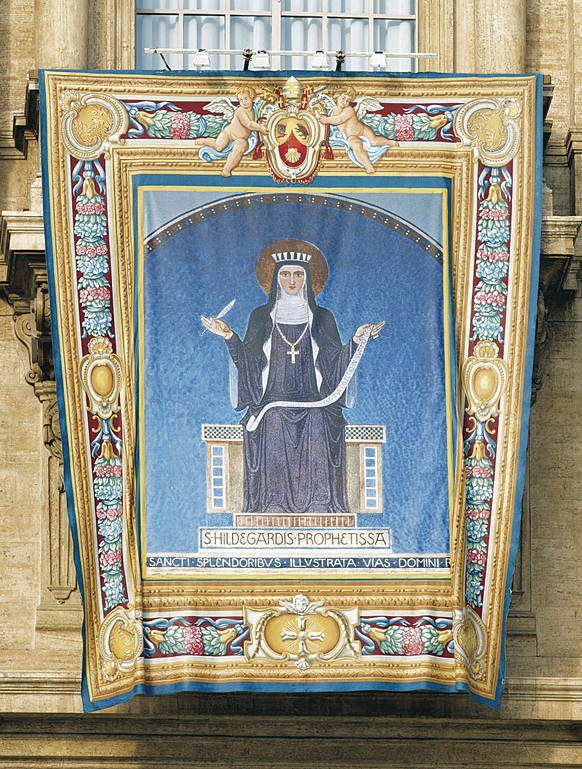by Francis X. Rocca

VATICAN CITY (CNS) – Pope Benedict added a 16th-century Spanish priest and a 12th-century German abbess to the roster of doctors of the universal church.
The pope proclaimed the new doctors, St. John of Avila and St. Hildegard of Bingen, at Mass Oct. 7 in St. Peter’s Square, where the thousands in attendance included pilgrims waving Spanish flags and German nuns in traditional habits.
In his homily, Pope Benedict said that St. John, “a profound expert on the sacred Scriptures,” knew how to “penetrate in a uniquely profound way the mysteries of the redemption worked by Christ for humanity.”
Noting St. Hildegard’s knowledge of medicine, poetry and music, the pope called her a “woman of brilliant intelligence, deep sensitivity and recognized spiritual authority. The Lord granted her a prophetic spirit and fervent capacity to discern the signs of the times.”
The doctors of the church, saints honored for particularly important contributions to theology and spirituality, come from both the Eastern and Western church traditions.
The 35 doctors include early church fathers such as Saints Jerome, John Chrysostom and Augustine, and theologians such as Saints Thomas Aquinas, Bonaventure and John of the Cross, but also St. Therese of Lisieux, who was honored by Blessed John Paul II in 1997, despite her lack of scholarly accomplishment.
St. Hildegard is the fourth female doctor of the church, joining Saints Therese, Catherine of Siena and Teresa of Avila.
The following day, in a 21-minute, off-the-cuff reflection during morning prayer at the synod’s opening session, Pope Benedict spoke of the importance of prayer in the Church’s push for a new evangelization, the meaning of evangelization and sharing the Gospel through both proclamation and charity. To evangelize means to help people understand that God Himself has responded to their questions, and that His response – the gift of salvation in Jesus Christ – is available to them as well, Pope Benedict XVI said.
“Our role in the new evangelization is to cooperate with God,” the pope told the more than 260 cardinals, bishops and priests who are members of the world Synod of Bishops on the new evangelization. “We can only let people know what God has done.”
When Christians evangelize, they must remember that their “faith has content” and that what they believe and seek to share with others is outlined in the creed, he said. They must use their intelligence to reflect on the tenets of their faith and use their mouths to proclaim it.
